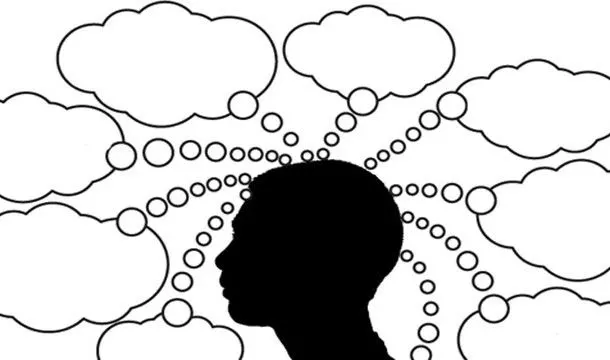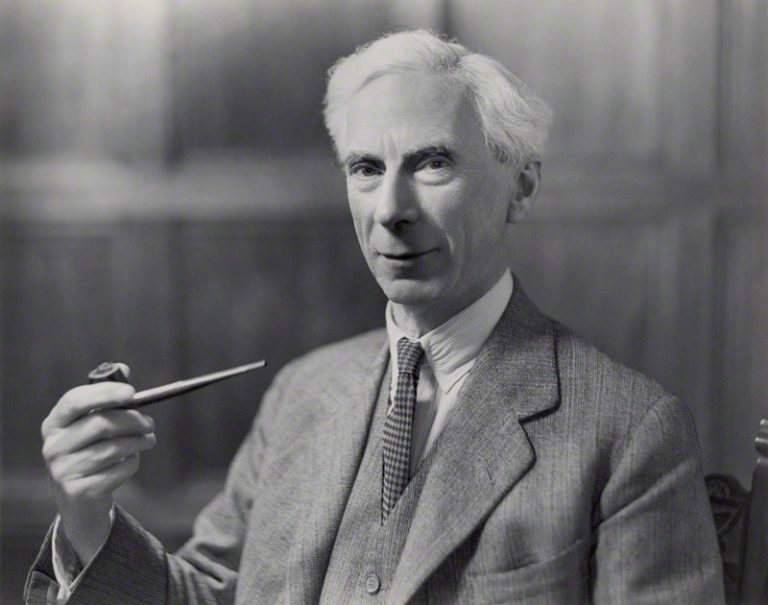“The one thing over which you have absolute control is your own thoughts. It is this that puts you in a position to control your own destiny” ~ Paul G. Thomas
It is estimated that we have anywhere from 50,000 to 70,000 thoughts per day.
On any given day our brains are susceptible to thousands upon thousands of “personalities” popping up in our thought patterns.

One thought may say “I feel terrible today, I look horrible, today is going to be a bad day,” and then two hours later another thought pops up, “today has turned out to be a pretty good day, I feel great.”
And these are just examples of thoughts we have about ourselves, there are also the thoughts we have that are sitting in judgment of people and situations, “she’s in a bad mood today,” or “that man looks suspicious, he must be up to something.”
For an unaware person this could wreak havoc on their psyche. One day one personality is prevalent and the next day a different personality has taken over.
However, all of this happens so automatically that most people don’t even realize that their perspective on things is shifting constantly day to day even minute to minute sometimes.
But, what most people don’t realize is that we are not our thoughts. Not only that, but our thoughts are not even OUR thoughts.
As Dean Jackson said, “If you can watch your thoughts, you are the watcher, not the thoughts.”
So the mere fact that we can observe whether we are having a sad thought, or an angry thought, or a pessimistic thought means that are not the thoughts themselves. All thought is happening automatically.
There is an illusion that we are the one generating all of our thought patterns, and that the little commentator in our mind is our own personality and therefore we must believe everything it says as truth. But if this was true, then which personality would we be?
Since we have our “pessimistic” thoughts and our “optimistic” thoughts then wouldn’t it be safe to say that we are not one personality all of the time?
Once we realize that thoughts are not our own and are happening automatically, a major shift in awareness comes. Firstly we can stop judging ourselves for our supposed “bad” thoughts, which means we no longer have to feel guilty or hate ourselves for having a thought that we have deemed less than desirable.
But also, it means we can start controlling our thought patterns. We can literally start changing our entire perspective on life which will also change our life experience. In order to start picking and choosing higher quality thought patterns we only need to ask ourselves this: Which thoughts are we giving our attention to and which thoughts are we actually believing?
“Don’t believe everything that you think” ~ Unknown
We’ve already established that thoughts are happening automatically. They are coming whether we want them to or not. So now we can start establishing how we will train our minds to start feeding us thought that make us feel good. If we look at training our minds like we would be training a child or training a pet we can see that using positive reinforcement with our mind is going to be the most effective method.
When we give a child or a pet more attention when it is acting bad or unruly than we do when it is behaving well, it learns to seek out attention by acting up. He or she realizes that attention comes as a result of acting “bad” so it puts out more of that behavior in hopes that he will receive more attention as a result.

Translate this to our thoughts, if our mind is spitting out negative, pessimistic, stress-filled thoughts and these are the ones that we entertain and give our attention to, guess which ones it will start giving us more of?
If we believe every thought that we have that things are bad, or not going well, or life is terrible, then we will start giving our attention and awareness to thoughts of this nature and when a thought comes in that tries to say otherwise, we probably will discard it and not believe it.
But, if we start only entertaining thoughts that are telling us that everything is ok, things are working out, we are worthy and deserving of happiness, then it is these types of thoughts that will amplify. Since all thought is energy, and energy will go where the attention is placed, we can assume that all of our energy will be focused on the higher vibration thought patterns (based more in love rather than fear).
Also, since like attracts like with energy we see that the more attention we give to these types of thought will attract more of the same type. Without bringing some level of awareness to what is going on inside of our heads, we run the risk of our thoughts running amuck and consequently amplifying feelings and experiences that we may not want more of.

In order to bring some awareness and space between what our thoughts are saying and what we choose to believe we must start practicing inner stillness. In this inner stillness we give ourselves a chance to choose whether we believe a thought or not.
If we don’t do this, we start running on auto-pilot, meaning that thoughts are being thrown at us, and we become slaves to our minds instead of being its master. The best way we can practice inner stillness is through meditation.
The more we meditate we actually will start to have times with no thought at all, and soon we start experiencing longer and longer periods of time with no thought. These periods of no thought will give us even more conscious control over which thoughts we allow into our awareness and which we choose to discard.
It has been said that we don’t attract to us what we think, but we attract to us what we BELIEVE.
If we can pick and choose what we believe by bringing awareness to our thought patterns and retraining our minds, then why WOULDN’T we choose to believe that all is well, and that the universe is always supporting us? Wouldn’t these types of beliefs allow for a more enjoyable life experience??
Image Source





 Embrace nature
Embrace nature

















